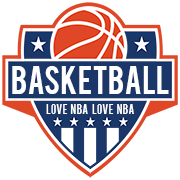
Bobby Marks (@BobbyMarks42) on X
Disclaimer: I am not a cap guru. I’d recommend @CBAMavs on X (also MavsMoneyball occasionally) for those not familiar with his work. Also CBABreakdown.com and SportsBusinessClassroom.com are great resources in addition to the usual Spotrac Basketball-Reference etc. resources.
The new CBA rules are nothing short of a complete paradigm shift in NBA roster building, but there are several critical rules Mavs fans need to keep in mind when contemplating any trade ideas or moves in general:
- Any sign and trade automatically triggers a hard cap at the first apron. (This actually impacted DAL all of last season due to acquiring G. Williams via S&T.
- Using the full non-taxpayer MLE automatically triggers a hard cap at the first apron. (Significant obviously because of DJJ)\
- Using the bi-annual exception automatically triggers a hard cap at the first apron. (Don’t think the Mavs are considering the BAE but it is available)
- Critically Important: Receiving more salary back in any trade triggers a hard cap at the first apron. (This one confuses me a bit, but essentially I believe you can’t exceed the first apron at any point after absorbing any money in a trade, even if said deal keeps you beneath both aprons)
Once you are hard capped, you cannot exceed it for any reason whatsoever. That includes potential player incentives not reflected in the team salary (Ky has $1M and PJ $500k in “unlikely” bonuses but they have to accounted for until they’re unattainable). It also means you can’t cross the hard cap with the MLE, vet minimum or two-way contracts, literally no scenario period. Therefore any trade which wouldn’t leave you enough cap space to fill your required minimum roster spots isn’t allowed. Similarly, teams already in the first apron must salary match at 100% or less on any trade—ie they can’t take back any money—keep that in mind as POR is a first apron team.
Nico pulled off nothing short of a miracle at the deadline beyond simply acquiring Gaff/PJ. Not only did he manage those acquisitions thanks to Sam Presti, but he did so while ducking under the tax so the Mavs aren’t in danger of paying repeater rates for a while at least.
Saying they need to upgrade is understandable, but going about that will be entirely different than we’ve been used to. Moving Tim and retaining DJJ should be considered a successful offseason. Doesn’t mean Nico won’t be searching, but it’s not worth blowing up your flexibility the next 2 critical summers chasing an expensive guy with 4 years remaining on their deal. You’d still hold your limited assets in February if you don’t trade them now (excluding Tim).
by DrewS_33



3 Comments
Prepare for the era of parity where the top 10 teams in the league will all rightfully believe they have a chance at the title, the draft & player development is more important than ever and the mediocre teams will all be holding their players trying to make the Play In Tournament.
This all means that rookie contracts are more important now, as they help control costs, which means picks are more valuable than before. Drafting and development will be key. This is what the Nuggets are attempting to do, but so far only Braun has paid off.
A team with a good set of picks that drafts and develops well is probably the only kind of team that can achieve sustained long-term success. Draft, develop, retain the best, and trade what you can of the rest for picks is the process, and it’ll be easier to pull off if you have a pick surplus. Basically 2-5 good players and a set of young talent. OKC, Spurs, and Jazz are examples of teams that are well placed to attempt this. Especially OKC and Spurs, as they already have the franchise cornerstone with which to contend for titles.
These apron rules are going to make trades harder for everyone. Anyone in even the 1st apron is going to have issues creating trades. It effectively takes a huge chunk of teams out of the trade market.